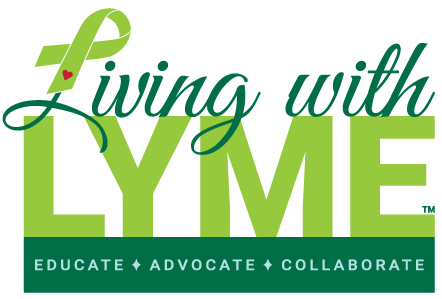Sustainable Education and the Future of Students
Sustainable education is more than a buzzword; it's a pathway towards a brighter future for the next generations. As the world grapples with environmental issues and social challenges, education can act as a beacon of hope. By making environmental education a core curriculum, we can build a robust foundation that empowers students to face the ever-changing global landscape. Education plays a significant role in shaping the minds and attitudes that will lead us towards a sustainable world. The following guide explores various aspects of sustainable education and its crucial impact on our children, communities, and the world at large.
Sustainable Education: More Than Just a Concept
Understanding sustainable education requires looking beyond textbooks and classrooms. Education plays a significant role in shaping the way we perceive and act on environmental issues. With 24 mentions of "sustainable," we delve into how education can help students develop the skills and knowledge needed to address these challenges. From practical lessons to theoretical insights, sustainable education paves the way for a responsible and ethical future. The need for such a change is undeniable, as we face new challenges and opportunities every day.
The Smile Foundation and Education: A Collaborative Effort
The Smile Foundation, with its efforts in providing access to quality education, works towards a brighter future for children https://ourgoodbrands.com/why-sustainable-education-important-future-generations/ in India. Through various programs and initiatives, they ensure that the importance of sustainable education is not just theoretical but practically implemented. Environmental education as a core curriculum is essential in instilling values that promote sustainability, social justice, and ethical practices. Their work in Delhi and other parts of India resonates with the aim to make environmental education accessible to all.
Hygiene Education for Young Girls: A Step Towards Empowerment
Education plays a significant role in personal and community development. Focusing on hygiene education for young girls not only empowers them but also impacts the overall well-being of the community. By understanding the challenges and working towards solutions, we can make lasting changes. This approach supports the foundation of sustainable practices, contributing to the overall goal of social and environmental harmony.
Model Sustainable Practices in School: Educating the Educators
Sustainable education doesn’t just start and end with the students. Educators, too, must embrace sustainable practices, as education can help them understand the role they play in shaping future generations. By modeling sustainable practices in school, teachers can inspire students to take matters into their own hands, promoting a culture of responsibility and proactiveness. This method can be the cornerstone of a new curriculum focused on sustainability and development.
Students Take Matters Into Their Own Hands: A New Era
In a world where environmental education is often sidelined, students are stepping up to make a change. By embracing education as a tool, they understand the impact they can create. Education plays a significant role in this transformation, allowing students to explore sustainable practices and apply them in their daily lives. From school projects to community involvement, these young minds are paving the way for a sustainable world where they are not just learners but active participants.
Embracing Challenges and Opportunities in Sustainable Education
Sustainable education presents both challenges and opportunities. With the world’s ever-growing needs and the constant change in environmental dynamics, education must adapt. Sustainable practices, collaborations like the Smile Foundation, and individual initiatives all contribute to this evolution. The challenges we face are real, but so are the solutions. Education can help us navigate this complex landscape, providing a blueprint for sustainable development that benefits human lives and our planet.
Creating a Curriculum for a New Generation: Future Needs and Goals
Building a curriculum that reflects the needs of future generations is vital in our journey towards sustainable education. Including environmental education as a core subject allows for a holistic approach that goes beyond traditional methods. By focusing on the key issues faced by our world, education can help students develop the skills, attitudes, and knowledge necessary to make a real impact. The goal is to create a learning environment that nurtures growth, inspires creativity, and fosters a sense of responsibility towards the environment and society.
Education in Delhi: A Case Study of Success and Growth
Delhi stands as a symbol of educational innovation and growth, with various initiatives focusing on sustainable practices. Education in Delhi is not confined to classrooms but extends to community involvement, practical learning, and the development of critical thinking. By understanding the unique challenges and harnessing the potential of students, education in Delhi demonstrates the power of collaboration, innovation, and commitment to sustainability. This case study offers valuable insights into how education can help shape a more responsible and future-ready society.
Do's and Don'ts
- Do make environmental education a core curriculum in schools.
- Do invest in training educators to model sustainable practices in school.
- Don't ignore the importance of local communities and their role in education.
- Don't underestimate the power of students to take matters into their own hands.
FAQ's
- What is sustainable education?
- How can education help in addressing environmental challenges?
- What role does the Smile Foundation play in promoting education in India?
- Why is it essential to include environmental education as a core curriculum?
Final Thoughts
Sustainable education is not just a concept but a movement that holds the promise of a better world. As we navigate the complexities of our global environment, education stands as a powerful tool to help us face the future. By embracing sustainable practices, involving communities, and empowering students, we can create a system that not only educates but inspires and nurtures. Let's make sustainable education a reality for our children, our future, and our planet.
Useful Resources: https://richiebilling.com/writing-tips/show-dont-tell
